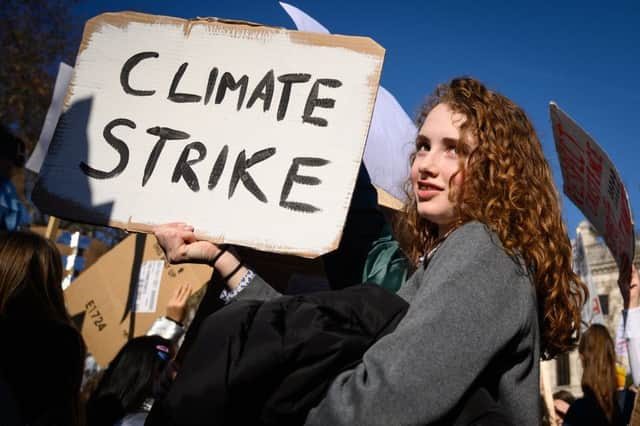Scots academics call for change in how land is used to slow climate change


Academics from Scotland and Europe say the pace of change must be stepped up dramatically to avoid catastrophic climate change.
Limiting average global temperature increases to 1.5C above pre-industrial levels, as set out in the Paris Agreement, relies heavily on improving the way agricultural land and forests are managed.
Advertisement
Hide AdAdvertisement
Hide AdMany countries have set out plans to prevent deforestation, plant new woodlands over large areas to absorb carbon dioxide from the air and reduce greenhouse gas emissions from agriculture.
The measures would remove up to a quarter of climate-warming emissions released by human activity annually.
However, making such changes usually takes decades – far too long to sufficiently cut the rate of warming, according to the report.
Study leader Dr Calum Brown, from Germany’s Karlsruhe Institute of Technology (KIT), said: “The 195 countries that signed the Paris agreement in 2015 set out a range of actions they would take to tackle climate change.
“In most cases little progress has been made in implementing these actions and often the situation has actually worsened in the last three years. Our research suggests many of the plans for mitigation in the land system were unrealistic in the first place, and now threaten to make the Paris target itself unachievable.”
Dr Peter Alexander, from the University of Edinburgh, added: “We need to find rapid, but realistic ways of changing human land use if we are to meet our climate change targets.”
The study highlights deforestation in tropical regions, which has accelerated in recent years, as a major source of greenhouse gas emissions.
“Ongoing destruction of tropical forests in Brazil, the Democratic Republic of the Congo and Indonesia is particularly concerning,” said Professor Mark Rounsevell, of KIT and the University of Edinburgh.
Advertisement
Hide AdAdvertisement
Hide Ad“Attempts to protect these forests have had limited success and laws against felling have recently been rolled back. Political and economic pressures make it very difficult for governments to stop deforestation and start reversing past damage.”